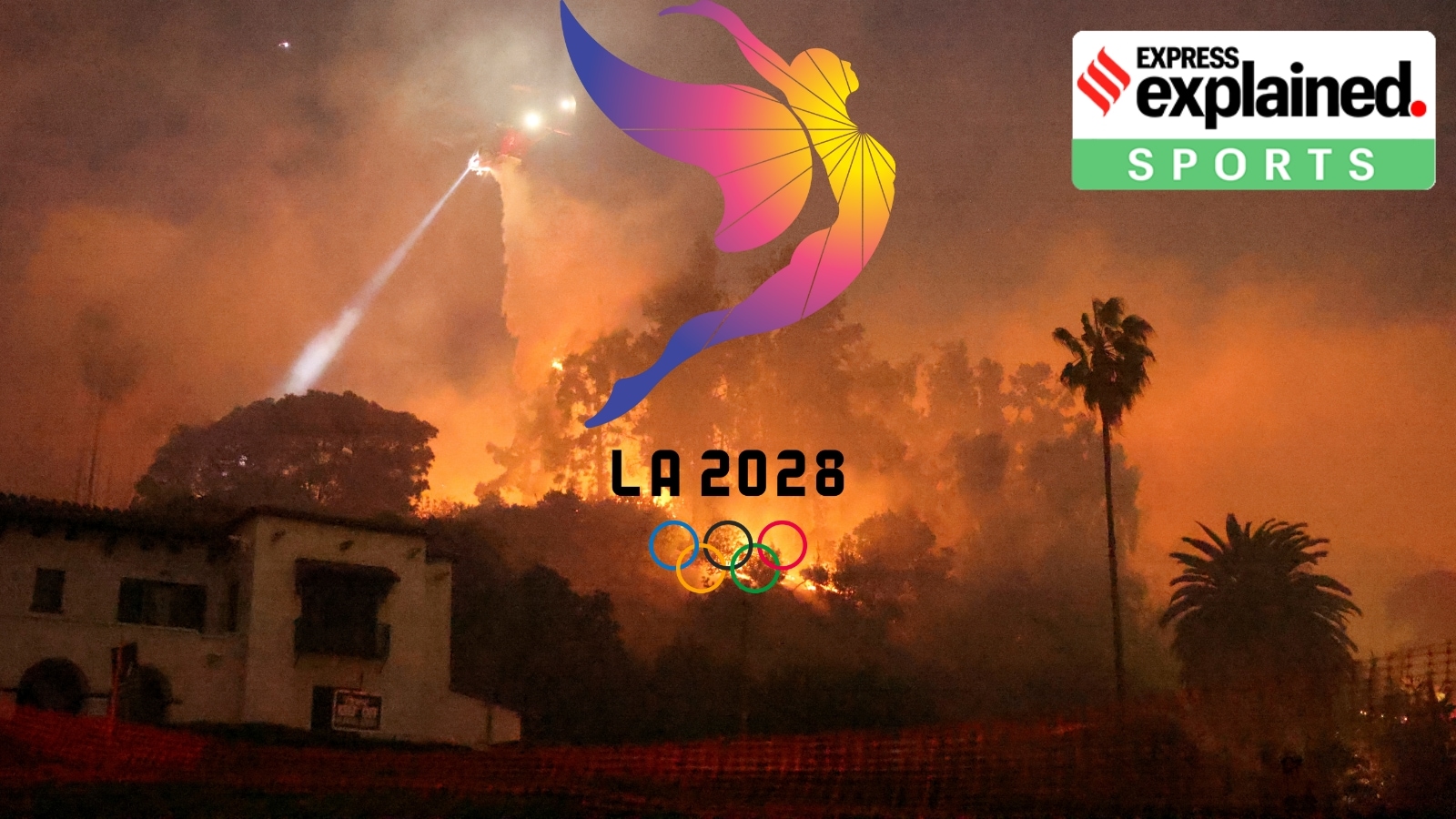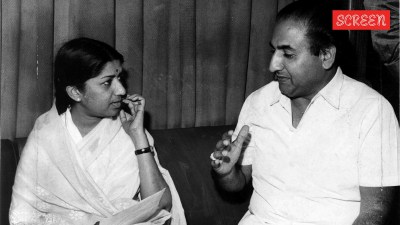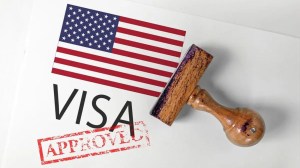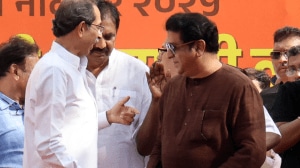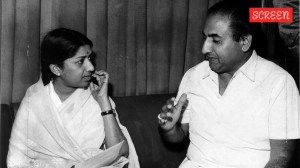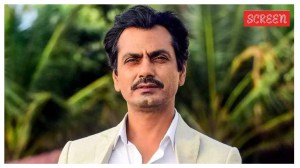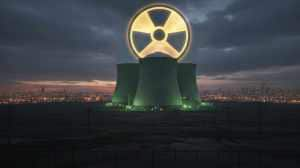Cassey Wasserman, the organising committee head of the Los Angeles Olympics, on Wednesday (January 16) night met US President-Elect Donald Trump at Mar-a-Lago, Florida.
This meeting came amidst growing calls to relocate the 2028 Olympics from LA to Dallas or Miami, including from Trump’s conservative base, due to the wildfires that have claimed tens of lives, and reduced entire neighbourhoods to ashes.

When they emerged from the room, Trump and Wasserman seemed to have doused the Olympic fire. “These are America’s Olympics,” Trump told Wasserman, according to Axios. “These are more important than ever to LA, and I’m going to be supportive in every way possible and make them the greatest games,” he reportedly said.
Wasserman said he’d received Trump’s “unwavering commitment” to “deliver a safe and successful Games [the US] can be proud of”.
Why Trump’s support matters
The LA Olympics are scheduled to begin on July 14, 2028. The Games were awarded to the US in 2017, during Trump’s first term, and the avid sports fan will be in the final months of his second term when they are held. Los Angeles last hosted the Olympics in 1984.
Trump’s support for the LA Games comes at a time when many conservative voices, such as media personality Charlie Kirk, have called for the games to be relocated.
“The Los Angeles Olympics should be cancelled,” Kirk posted on X. “If you can’t fill a fire hydrant, you aren’t qualified to host the Olympics. Move them to Dallas or Miami, so the world’s athletes can compete in a place capable of actually safely building and running something.”
Story continues below this ad
Mike Bonin, a former Los Angeles City Council member who voted in support of the Olympics, was quoted as saying by The New York Times: “It calls into question the city’s ability to deliver the Olympics. This is cause for elected officials to ask themselves the question: Is this something we can handle?”
Cancelling or shifting the Games
The wildfires — that have thus far claimed 24 lives, devastated more than 150 square kilometres, and destroyed some 10,000 structures — have led many to question the administration’s priorities. The reconstruction costs are conservatively estimated to be $135 billion.
In the middle of such a crisis, critics say, the Olympics — a 17-day spectacle that will cost LA approximately $7 billion and draw 15 million visitors — is an avoidable indulgence.
Others have wondered if the planning and preparation for the Games will be affected because of the inferno.
Story continues below this ad
Although none of the 50 planned venues have been impacted, the Riviera Country Club, scheduled to host the Olympic golf tournament, and Sepulveda Basin Recreation Area, which will host archery, BMX, and skateboarding events, were near the areas ravaged by the wildfires. Even the Rose Bowl Stadium, which will host football matches, was within the evacuation zone in Pasadena.
Simon Chadwick, professor of sport and geopolitical economy at Skema Business School, was quoted as saying by the website Inside The Games that LA 2028 “could risk becoming an uninsurable mega-event”.
“We must ask if these disasters could happen again, even during the Games,” he said.
A University of California study observed that “high-severity wildfires in California have been increasing by about 10% per decade since 1984”, the last time LA hosted the Olympics.
Rebranding the Games
Story continues below this ad
So far, any talk about cancelling or shifting the Games has been dismissed. Not just the Olympics, Los Angeles is also one of the host cities for the FIFA World Cup next year, and although the venue is in close proximity to the areas affected by the wildfires, there have been no talks to move out the matches.
That said, the FIFA World Cup in 2026, and the Super Bowl in 2027 are not expected to strain the local resources as much as the Olympics.
California governor Gavin Newsom has rebranded the 2028 Olympics as the “Recovery Games”. Speaking to NBC, the Olympics’ main broadcaster, he underlined “all that opportunity and that pride and spirit” that comes from hosting the Olympics, the Super Bowl, and the FIFA World Cup.
“But also the opportunity, I think, to rebuild at the same time. And that’s why we’re already organising a Marshall Plan. We already have a team [that’s]… reimagining LA 2.0, and we are making sure everyone’s included,” he told NBC.
Story continues below this ad
This is not the first time the Olympics will be used as a vehicle to transform a region devastated by a calamity. In 2020, Tokyo Olympics organisers used the Games to lift morale following the earthquake and nuclear disaster that hit Japan in 2011.

